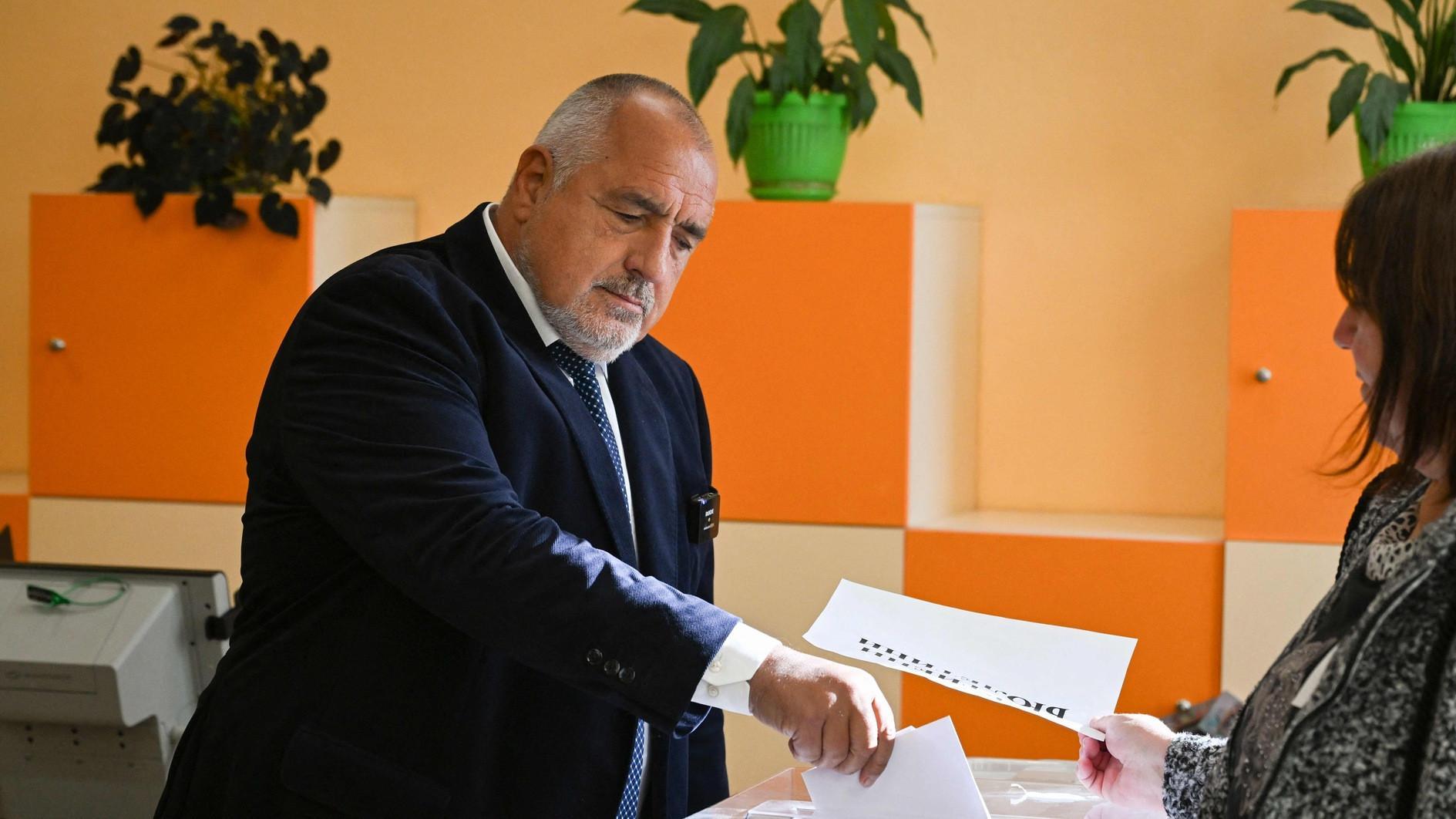
The center-right GERB party of ex-premier Boyko Borissov appears to be the winner of Bulgaria’s parliamentary election, the country’s central electoral commission said Monday, with 98 percent of the ballots counted.
Results showed the GERB party receiving 26.5 percent of the vote, nearly 12 percentage points more than the pro-Western reformist bloc led by the We Continue the Change party.
Seven other parties also appear to have gained seats in the 240-seat chamber, according to the latest results.
The far-right, ultranationalist and populist party Vazrazhdane came in third with 13.5 percent of the vote.
Capitalizing on pro-Russian sentiments shared by many in this former communist nation, it demands that Bulgaria lift sanctions against Russia, stop helping Ukraine, and hold a referendum on its membership in NATO.
The Movement for Rights and Freedoms, which traditionally represented Bulgaria’s large ethnic Turkish minority, recently split into two rival factions, one around party founder Ahmed Doğan, and the other behind U.S.-sanctioned businessman and former media tycoon Delyan Peevski.
Both factions entered parliament – the first with 7 percent, and the latter with 11 percent of the vote.
The remaining seats in the chamber will be divided between four small populist and pro-Russian groups, among them the Socialist Party – heir of the once-almighty Communist Party.
It could take days before the final official results are announced. If confirmed, Borissov will be handed a mandate to form his fourth government.
In his first comment after the vote, Borissov described his party’s victory as “categorical” and said that he was ready to compromise to form a coalition with all other parties except Vazrazhdane.
But it seems Borissov will face an uphill struggle to cobble together a governing coalition. Political analysts predicted that the results, which do not differ significantly from the six previous elections held within the past three-and-a-half years, will be followed by difficult coalition talks.